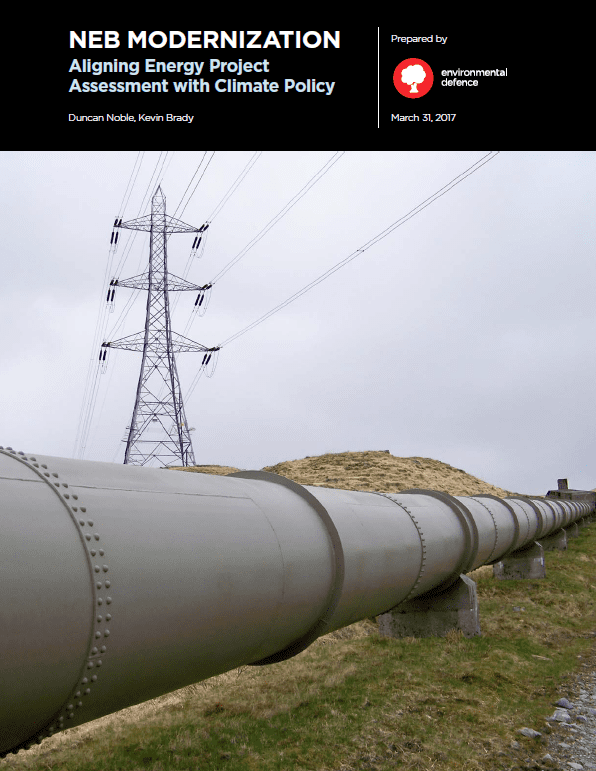

About The Report:
The federal government is overhauling the National Energy Board (NEB), Canada’s pipeline regulator. As part of the NEB Modernization process, Environmental Defence commissioned a special report on how to design a “climate test”. The climate test would ensure that major energy projects—like tar sands pipelines—fit within Canada’s climate commitments and make economic sense in a low-carbon world.
One part of the climate test would check if a project fits within Canada’s “carbon budget”—the amount of carbon pollution each province and industrial sector can emit while staying within Canada’s climate targets of 30 per cent below 2005 levels by 2030 and 80 per cent by 2050. If the pollution produced by an energy project breaks the carbon budget, then it would fail the climate test.
The second part of the climate test would determine if an energy project is economically viable in a low-carbon world. Limiting global warming to two degrees Celsius means leaving fossil fuels in the ground, and reducing the supply and demand of oil, gas and coal. An energy project that’s not economically viable in a two degree world would fail the climate test.
(Adobe Reader is required to read this pdf report. Please ensure you have the latest version.)



